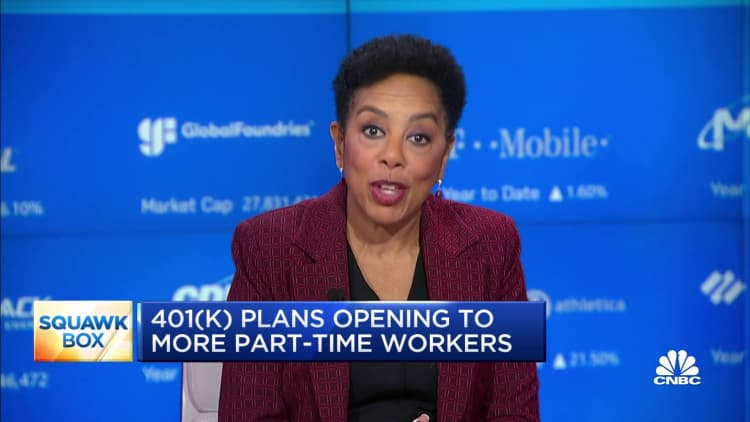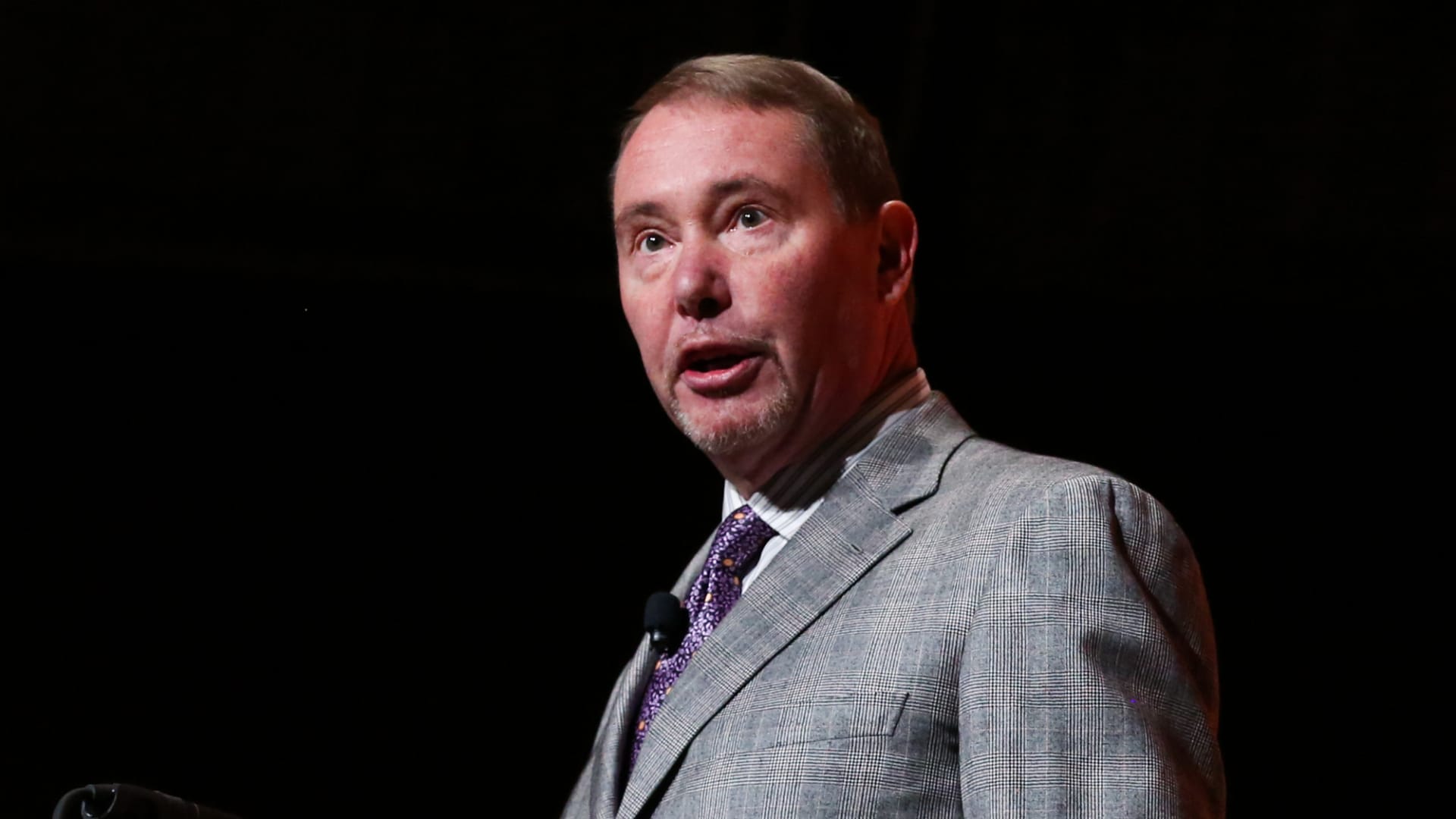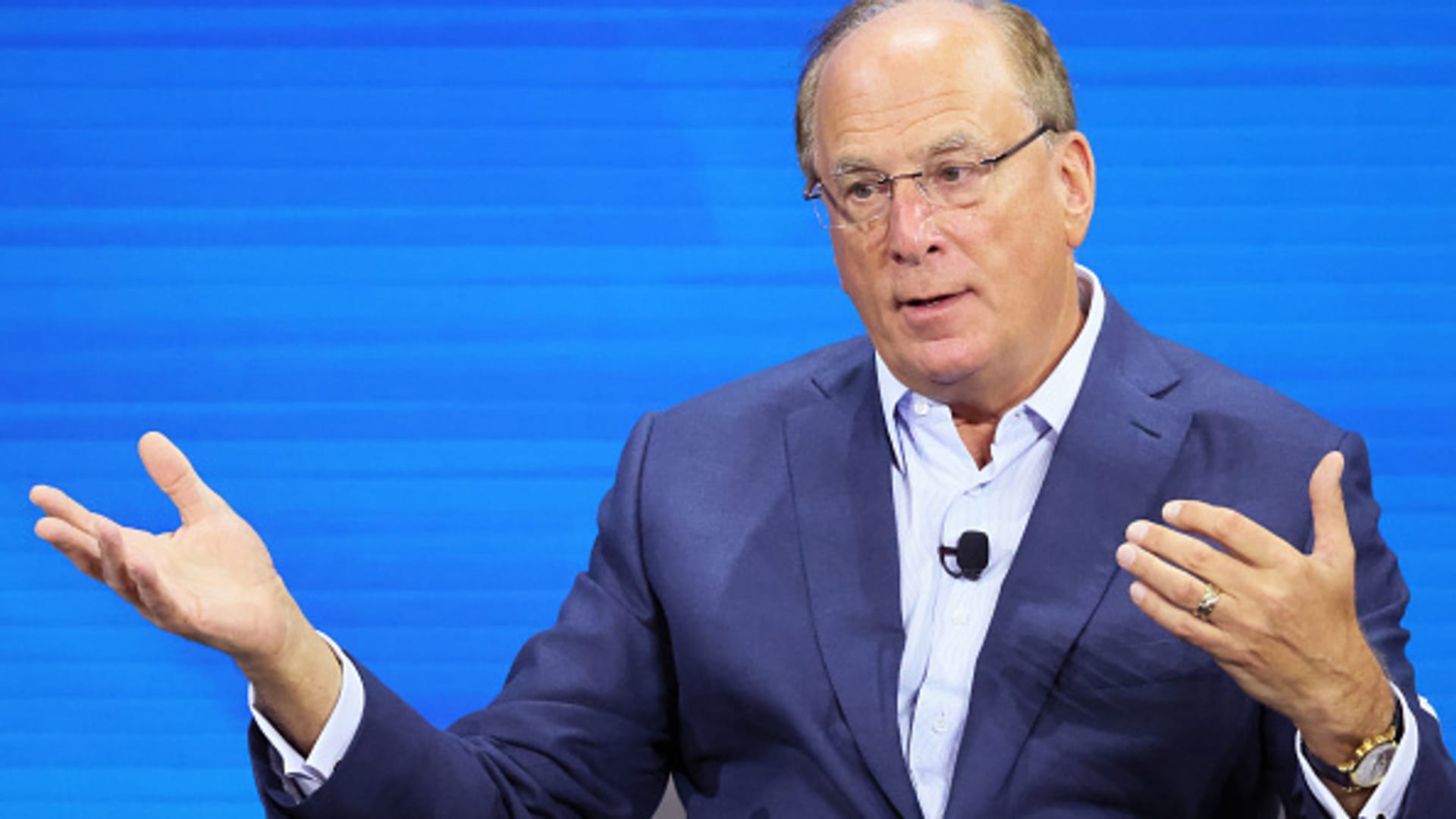Morsa Images | Digitalvision | Getty Images
Companies can now offer their workers a “match” on their student loan payments in the form of a contribution to their 401(k) plan — and a small but growing number of employers are taking advantage.
Traditionally, companies have only paid a 401(k) match to workers based on their voluntary contributions to the workplace retirement plan. A worker choosing to save 3% of their annual pay in a 401(k) might get a 3% match from their employer, for example.
Now, companies can treat a worker’s student loan payments like an elective 401(k) plan contribution.
Federal law allows employers to give a match based on a worker’s payments toward student debt. Workers generally don’t have to contribute to the 401(k) plan to qualify for the funds.
The measure, part of a package of retirement changes dubbed Secure 2.0, kicked in starting in 2024.
Kraft, Workday among companies adding the benefit
The policy’s goal is to help workers tackle two competing financial obligations: paying down debt while simultaneously saving for retirement.
More than 100 companies have implemented the benefit to date, covering almost 1.5 million eligible employees, according to data from Fidelity, the nation’s largest 401(k) plan administrator.
They include “some of the largest firms in the U.S.,” like Kraft, Workday and News Corp., Jesse Moore, senior vice president and head of student debt at Fidelity, explained in an e-mail.
“Many more [are] showing strong interest in offering it in 2025,” Moore said.
About 5% of employers have already added the benefit, according to forthcoming survey results from Alight, one of the largest U.S. retirement-plan administrators.
Another 12% of employers say they are “very likely” to adopt it in 2025, while 29% are “moderately likely” to do so, according to Alight. It polled 122 employers (with 11 million total workers) in September.
Financial help and worker retention
Largely, interest has grown due to Secure 2.0, which allows companies to do it, Rob Austin, head of thought leadership at Alight, said in an e-mail.
Comcast is among the employers adding a student loan-401(k) match benefit next year.
Offering the benefit will help workers “manage their long-term term financial wellness” in a tax-efficient way, said a Comcast spokesperson
About 90,000 U.S. employees are eligible for the match, on up to 6% of their eligible annual earnings, they said.
More from Personal Finance:
Student loan borrowers may find bankruptcy harder under Trump
College enrollment falls 5% for 18-year-old freshmen
‘Dynamic pricing’ was a top contender for word of the year
Some companies also see the match program as a way to attract and retain college graduates in competitive fields, experts said.
“We’ve heard from many employees that they struggle with student loans,” especially those early in their careers, the Comcast spokesperson said.
“We’re trying to build a value proposition that meets [workers’] needs,” they said.
The student loan measure is also available to companies that sponsor other types of workplace retirement plans, like 403(b) or governmental 457(b) plans or SIMPLE IRAs, according to the Internal Revenue Service.
How the student loan benefit works
The maximum amount of “qualified student loan payments” is generally limited to the annual salary deferral limit, according to Brian Dobbis, retirement solutions lead at Lord Abbett, a money manager. That 401(k) limit is $23,000 in 2024 for workers under age 50.
Here’s a general example: A 30-year-old participates in a 401(k) plan in 2024. The worker chooses to contribute $18,000 in the plan. If they also pay $8,000 toward their student loans that year, only $5,000 ($23,000 minus $18,000) of those repayments is eligible to be matched, Dobbis said.
The worker’s ultimate match amount is dictated by employers’ respective match cap, commonly set around 3% to 6% of a worker’s annual salary.
Of course, companies may structure the benefit somewhat differently from one another.
Companies had the benefit prior to Secure 2.0
Employers had begun offering a 401(k)-linked student loan benefit even before Secure 2.0.
Abbott, a healthcare technology company, has provided a similar benefit since 2018, through its “Freedom 2 Save” program, which was thought to be the first of its kind. The company secured a private letter ruling from the IRS to be able to do so.
More companies have followed since.
In 2022, for example, about 1% of all 401(k) plans were offering or planned to offer a match based on student loan payments, according to an annual survey by the Plan Sponsor Council of America, a trade group. By 2023, that share had increased to about 2%, according to the group’s latest poll, of 709 employers, set to be published this month.
“Pharmaceutical companies are among the earliest adopters, most likely because Abbott pioneered this idea, and competitors followed,” said Austin of Alight.
The share jumped most — to almost 5% in 2023 from 2% in 2022 — among the largest firms, or those with more than 5,000 employees, PSCA found.
It seems there has been “increased interest” among firms with a big cohort of college-educated workers, said Hattie Greenan, PSCA’s research director.
“We will continue to see this number slowly increase as those companies look for ways to differentiate their benefits packages to complete for top talent, and as some of the administrative complexities are worked out,” Greenan said.
Why many firms aren’t adding a student loan match
Morsa Images | Digitalvision | Getty Images
However, most companies are still sitting on the sidelines.
For example, 55% of employers say they are “not at all likely” to add the provision in 2025, according to Alight’s survey.
There are a few reasons businesses may not want to implement the measure, and they can vary from company to company, said Ellen Lander, the founder of Renaissance Benefit Advisors Group, based in Pearl River, New York.
None of her clients have yet chosen to adopt it.
For one, employers may already offer a different education benefit to their workforce. Further, companies, especially those with many higher earners, may not feel they need the benefit if there isn’t evidence of lagging 401(k) participation even among those with student debt, she said.
Some employers may already make a non-elective contribution to workers each year (perhaps a profit-sharing contribution), even to workers who don’t participate in the company 401(k), Lander said.
One client also viewed the student loan policy as “unfair,” since it only applied to a certain subset of workers (i.e., those with student debt), Lander said.
“I would hope every client is discussing it with their consultant,” Lander said. “To me, it’s something you should definitely consider. And then you need to get into the weeds: Do you need it?”
Disclosure: Comcast owns CNBC parent NBCUniversal.

 Personal Finance1 week ago
Personal Finance1 week ago
 Economics1 week ago
Economics1 week ago
 Economics1 week ago
Economics1 week ago
 Economics4 days ago
Economics4 days ago
 Finance4 days ago
Finance4 days ago
 Economics4 days ago
Economics4 days ago
 Economics4 days ago
Economics4 days ago
 Finance3 days ago
Finance3 days ago











